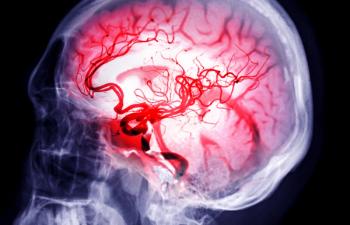
Vitamin D deficiency linked to Alzheimer’s disease
Individuals who have a vitamin D deficiency have a higher risk of developing Alzheimer’s disease, according to a prospective, population-based study published online for Neurology, the journal of the American Academy of Neurology.
Individuals who have a vitamin D deficiency have a higher risk of developing Alzheimer’s disease, according to a prospective, population-based study published
Low vitamin D concentrations, defined as deficient (≥25 nmol/L to <50 nmol/L) in adults from the Cardiovascular Health Study, were associated with a 51% increased risk of Alzheimer’s disease and all-cause dementia after follow-up of a mean of 5.6 years (range, 0.1 to 8.4 years). Those with a severe deficit of vitamin D (<25 nmol/L) were at higher risk for Alzheimer’s disease and dementia, reaching more than 120%, the researchers noted.
The
More than 1,650 patients from the Cardiovascular Health Study were enrolled in the vitamin D study and followed for a mean of more than 5 years. At the end of the study, 171 had all-cause dementia and 102 had Alzheimer’s disease. When adjusting for age, season of vitamin D collection, education, sex, body mass index, smoking, alcohol consumption, and depression, 168 cases of all-cause dementia and 100 cases of Alzheimer’s disease resulted.
“The optimal level of vitamin D for general health remains controversial, with the Institute of Medicine recommending 50 nmol/L and the Endocrine Society recommending 75 nmol/L,” the authors noted.
“Our results clarify that the threshold above which older adults are unlikely to benefit from supplementation with regard to dementia risk is likely to lie in the region of 50 nmol/L,” they said.
The authors believe their findings suggest that vitamin D may be neuroprotective and that sufficient vitamin D concentrations should be about 50 nmol/L to maintain general health.
Newsletter
Pharmacy practice is always changing. Stay ahead of the curve with the Drug Topics newsletter and get the latest drug information, industry trends, and patient care tips.




































